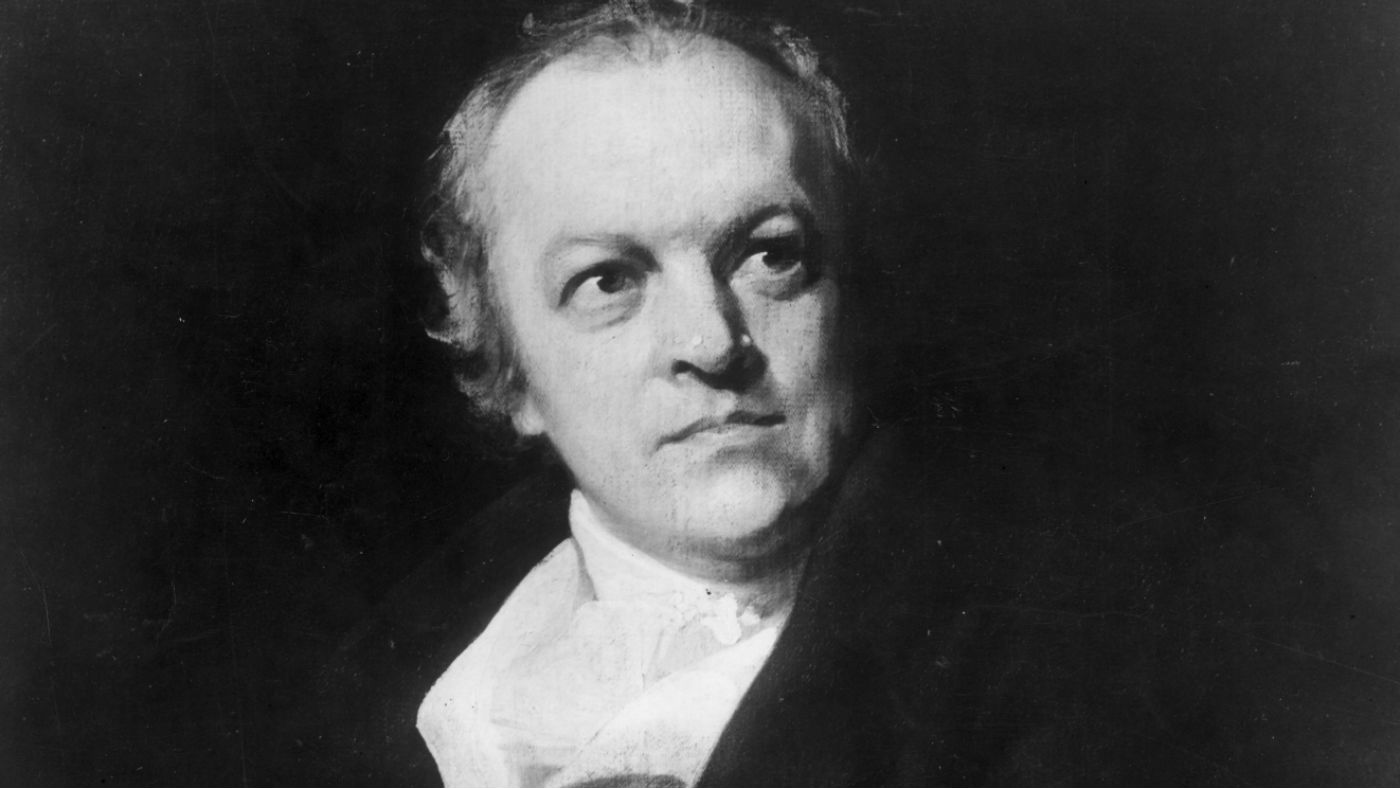William Blake’s best poems
Often dismissed as mad during his lifetime, Blake’s mystical imagery continues to enthral

A free daily email with the biggest news stories of the day – and the best features from TheWeek.com
You are now subscribed
Your newsletter sign-up was successful
Close to two centuries after his death, the mystical poetry of William Blake continues to be studied and cherished as one of the most distinctive voices in the English language.
Born on 28 November 1757 in Soho to a family of modest means, Blake’s creative talents and eccentricities both manifested themselves from an early age.
Obsessed with the Bible, he reported seeing visions of angels for the first time at the age of eight.
The Week
Escape your echo chamber. Get the facts behind the news, plus analysis from multiple perspectives.

Sign up for The Week's Free Newsletters
From our morning news briefing to a weekly Good News Newsletter, get the best of The Week delivered directly to your inbox.
From our morning news briefing to a weekly Good News Newsletter, get the best of The Week delivered directly to your inbox.
His lifelong claims to see angels and demons, as well as his eccentric beliefs and behaviour, led many of his contemporaries - notably William Wordsworth - to believe he was insane, although several acknowledged his creative genius.
From a young age, Blake exhibited a pronounced talent for drawing. Apprenticed to an engraver in his teens, he went on to become a modestly successful engraver and printmaker, illustrating many of his own poems himself. He died in 1827.
Although largely unrecognised in his lifetime, his poetry - particularly the companion works Songs of Innocence (1789) and Songs of Experience (1794) - later came to be seen as among the best of the Romantic era and a unique contribution to English literature.
His poetic work is steeped in religious allegory and mystical imagery inspired by his visions and his radical rejection of orthodox Christianity and social constraints. Here are some of his best-known poems:
A free daily email with the biggest news stories of the day – and the best features from TheWeek.com
And Did Those Feet In Ancient Time (1804)
And did those feet in ancient timeWalk upon England’s mountains green?And was the holy Lamb of GodOn England’s pleasant pastures seen?
And did the Countenance DivineShine forth upon our clouded hills?And was Jerusalem builded hereAmong these dark satanic mills?
Bring me my bow of burning gold!Bring me my arrows of desire!Bring me my spear! O clouds, unfold!Bring me my chariot of fire!
I will not cease from mental fight,Nor shall my sword sleep in my hand,Till we have built JerusalemIn England’s green and pleasant land.
A Cradle Song (1789)
Sweet dreams form a shade,O’er my lovely infants head.Sweet dreams of pleasant streams,By happy silent moony beams
Sweet sleep with soft down.Weave thy brows an infant crown.Sweet sleep Angel mild,Hover o’er my happy child.
Sweet smiles in the night,Hover over my delight.Sweet smiles Mothers smiles,All the livelong night beguiles.
Sweet moans, dovelike sighs,Chase not slumber from thy eyes,Sweet moans, sweeter smiles,All the dovelike moans beguiles.
Sleep sleep happy child,All creation slept and smil’d.Sleep sleep, happy sleep.While o’er thee thy mother weep
Sweet babe in thy face,Holy image I can trace.Sweet babe once like thee.Thy maker lay and wept for me
Wept for me for thee for all,When he was an infant small.Thou his image ever see.Heavenly face that smiles on thee,
Smiles on thee on me on all,Who became an infant small,Infant smiles are His own smiles,Heaven & earth to peace beguiles.
A Poison Tree (1794)
I was angry with my friend:I told my wrath, my wrath did end.I was angry with my foe:I told it not, my wrath did grow.
And I watered it in fears,Night and morning with my tears;And I sunned it with smiles,And with soft deceitful wiles.
And it grew both day and night,Till it bore an apple bright.And my foe beheld it shine.And he knew that it was mine,
And into my garden stoleWhen the night had veiled the pole;In the morning glad I seeMy foe outstretched beneath the tree.
The Tyger (1794)
Tyger! Tyger! burning bright,In the forests of the night,What immortal hand or eyeCould frame thy fearful symmetry?
In what distant deeps or skiesBurnt the fire of thine eyes?On what wings dare he aspire?What the hand dare sieze the fire?
And what shoulder, & what art,Could twist the sinews of thy heart?And when thy heart began to beat,What dread hand? & what dread feet?
What the hammer? what the chain?In what furnace was thy brain?What the anvil? what dread graspDare its deadly terrors clasp?
When the stars threw down their spears,And water’d heaven with their tears,Did he smile his work to see?Did he who made the Lamb make thee?
Tyger! Tyger! burning brightIn the forests of the night,What immortal hand or eyeDare frame thy fearful symmetry?
London (1794)
I wandered through each chartered street,Near where the chartered Thames does flow,A mark in every face I meet,Marks of weakness, marks of woe.
In every cry of every man,In every infant’s cry of fear,In every voice, in every ban,The mind-forged manacles I hear:
How the chimney-sweeper’s cryEvery blackening church appals,And the hapless soldier’s sighRuns in blood down palace-walls.
But most, through midnight streets I hearHow the youthful harlot’s curseBlasts the new-born infant’s tear,And blights with plagues the marriage-hearse.
-
 House votes to end Trump’s Canada tariffs
House votes to end Trump’s Canada tariffsSpeed Read Six Republicans joined with Democrats to repeal the president’s tariffs
-
 Bondi, Democrats clash over Epstein in hearing
Bondi, Democrats clash over Epstein in hearingSpeed Read Attorney General Pam Bondi ignored survivors of convicted sex offender Jeffrey Epstein and demanded that Democrats apologize to Trump
-
 Are Big Tech firms the new tobacco companies?
Are Big Tech firms the new tobacco companies?Today’s Big Question Trial will determine if Meta, YouTube designed addictive products